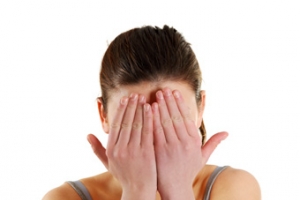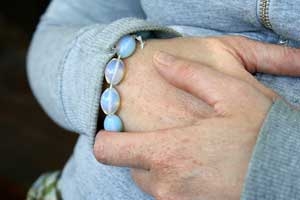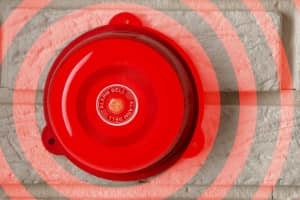Panic Attacks Online Course - Part 4: Panic attack symptoms - Hyperventilation (over-breathing)
We've covered several panic attack symptoms in the course so far. Now we're going to take a look at hyperventilating (or overbreathing), which causes, or makes many panic attacks worse. It can be counted amongst panic attack symptoms, or amongst causes, as one 'feeds' off the other.
About 60% of attacks are accompanied by hyperventilation and many panickers overbreathe even whilst relaxed.
The most important thing to understand about hyperventilation is that although it can feel as if you don't have enough oxygen, the opposite is true. It is a symptom of too much oxygen.
With hyperventilation, your body has too much oxygen. To use this oxygen (to extract it from your blood), your body needs a certain amount of Carbon Dioxide (CO2).
When you hyperventilate, you do not give your body long enough to retain CO2, and so your body cannot use the oxygen you have. This causes you to feel as if you are short of air, when actually you have too much. This is why the following techniques work to get rid of hyperventilation.
Some hyperventilation and panic attack symptoms are:
- Light headiness
- Giddiness
- Dizziness
- Shortness of breath
- Heart palpitations
- Numbness
- Chest pains
- Dry mouth
- Clammy hands
- Difficulty swallowing
- Tremors
- Sweating
- Weakness
- Fatigue
Getting Rid of Hyperventilation
Anybody who hyperventilates will find that symptoms of over-excitedness or panic will occur. So how can learn to breathe more evenly and naturally?
-
Hold your breath. Holding your breath for as long as you comfortably can will prevent the dissipation of carbon dioxide. If you hold your breath for a period of between 10 and 15 seconds and repeat this a few times that will be sufficient to calm hyperventilation quickly.
-
Breathe in and out of a paper bag. This will cause you to re-inhale the carbon dioxide that you exhaled. Naturally there are many times when this would be inappropriate and may appear a little strange. It really helps though.
-
Thirdly you can take vigorous exercise while breathing in and out through your nose. A brisk walk or jog whilst breathing through the nose will counter hyperventilation. Regular exercise will decrease general stress levels decreasing the chance of panic attacks.
-
If you find that your breathing pattern is irregular or uncomfortable a lot of the time, the best way to 'reset' it is by exercising. Start off gradually and check with your doctor if you are not used to exercise.
The 7:11 Breathing Pattern - the opposite of hyperventilation
Finally you can practice a special type of breathing, not into your chest but deep into your tummy or diaphragm which is below your chest. The important thing here is that the out breath must be longer that the in breath. This causes stimulation of the part of your nervous system responsible for relaxation. This is a basic law of biology and if you breathe in this way then your body will have no choice but to relax.
It may take a few minutes but the body will respond regardless of what your mind is thinking. Experience this now. Sit down and close your eyes for a little while. Just become aware of your breathing.and breathe in to the count of seven. and breathe out to the count of eleven. You can hold for a couple of seconds at the bottom of the out breath if that's comfortable for you.
It may be a little difficult at first, but doing this regularly causes your general anxiety level to come down. You may also find that you begin to breathe this way automatically if you feel anxious. Regular relaxation actually starts to inhibit the production of stress hormones in the body so it actually becomes harder and harder to panic. As you become more generally relaxed the 'baseline' of arousal from which you are starting lowers. It actually becomes harder to get stressed!
Hyperventilation responds very well to this technique. If you practice this daily, hyperventilating should cease to be a problem very quickly. It can also give you much more control over panic attacks.
You are hopefully coming to understand that panic attack symptoms are natural physiological reactions. Next, how a panic attack causes the brain to behave in a certain way...
Part 5: The Brain and Panic Attacks: 'Emotional Hijacking' »

Get a free hypnosis session with our new Overcome Anxiety app for iPhone & Android
Includes our most popular anxiety treatment session free, with the option to upgrade to 10 more sessions.
Get the Overcome Anxiety Hypnosis app for iOS (iPhone or iPad) here or for Android here.








